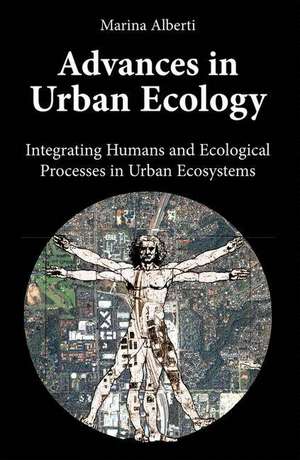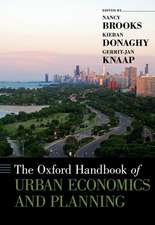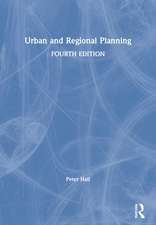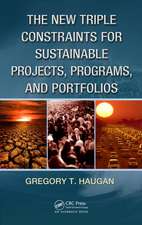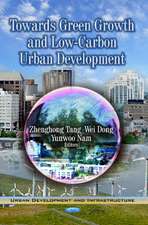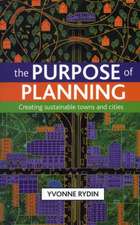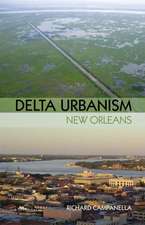Advances in Urban Ecology: Integrating Humans and Ecological Processes in Urban Ecosystems
Autor marina Albertien Limba Engleză Paperback – 10 dec 2008
| Toate formatele și edițiile | Preț | Express |
|---|---|---|
| Paperback (1) | 1007.35 lei 6-8 săpt. | |
| Springer Us – 10 dec 2008 | 1007.35 lei 6-8 săpt. | |
| Hardback (1) | 963.77 lei 6-8 săpt. | |
| Springer Us – 6 ian 2008 | 963.77 lei 6-8 săpt. |
Preț: 1007.35 lei
Preț vechi: 1228.47 lei
-18% Nou
Puncte Express: 1511
Preț estimativ în valută:
192.78€ • 199.15$ • 160.44£
192.78€ • 199.15$ • 160.44£
Carte tipărită la comandă
Livrare economică 25 martie-08 aprilie
Preluare comenzi: 021 569.72.76
Specificații
ISBN-13: 9780387922911
ISBN-10: 0387922911
Pagini: 366
Ilustrații: XVIII, 366 p. 77 illus., 10 illus. in color.
Dimensiuni: 155 x 235 x 18 mm
Greutate: 0.66 kg
Ediția:2008
Editura: Springer Us
Colecția Springer
Locul publicării:New York, NY, United States
ISBN-10: 0387922911
Pagini: 366
Ilustrații: XVIII, 366 p. 77 illus., 10 illus. in color.
Dimensiuni: 155 x 235 x 18 mm
Greutate: 0.66 kg
Ediția:2008
Editura: Springer Us
Colecția Springer
Locul publicării:New York, NY, United States
Public țintă
ResearchDescriere
Natural and social scientists face a great challenge in the coming decades: to understand the role that humans play in ecosystems, particularly urban ecosystems. Cities and urbanizing regions are complex coupled hum- natural systems in which people are the dominant agents. As humans transform natural landscapes into highly human-dominated environments, they create a new set of ecological conditions by changing ecosystem processes and dynamics. Urbanization changes natural habitats and species composition, alters hydrological systems, and modifies energy flows and nutrient cycles. Although the impacts of urban development on ecosystems occur locally, they cause environmental changes at larger scales. Envir- mental changes resulting from urbanization influence human behaviors and dynamics and affect human health and well-being. Remarkable progress has been made in studying the impact of urban de- lopment on ecosystem functions (McDonnell and Pickett 1993, McDonnell et al. 1997, Grimm et al. 2000, Pickett et al. 2001, Alberti et al. 2003), yet the interactions and feedback between human processes and ecosystem dynamics in urbanizing regions are still poorly understood. In this book I argue that new syntheses across the natural and social sciences are necessary if urban and ecological dynamics are to be successfully integrated into a common fra- work to advance urban ecology research. If we remain within the traditional disciplinary boundaries, we will not make progress towards a theory of urban ecosystems as coupled human-ecological systems, because no single disc- line can provide an unbiased and integrated perspective.
Cuprins
The Urban Ecosystem.- Humans as a Component of Ecosystems.- Urban Patterns and Ecosystem Function.- Landscape Signatures.- Hydrological Processes.- Biogeochemical Processes.- Atmospheric Processes.- Population and Community Dynamics.- Futures of Urban Ecosystems.- Urban Ecology: A Synthesis.
Recenzii
Aus den Rezensionen:
“... liefert ... einen interessanten und sehr umfassenden Überblick über aktuelle Fragestellungen, Theorien und Erkenntnisse der Stadtökologie aus US-amerikanischer Sicht. ... wendet sich in erster Linie an Wissenschaftlerinnen und Wissenschaftler … die sich mit urbanen Ökosystemen befassen. Aus der Perspektive Deutschlands ist vor allem die umfassende Darstellung ... äußerst aufschlussreich.“ (Alice Kube, in: Natur und Landschaft, December/2010, Vol. 85, Issue 12, S. 552)
“... liefert ... einen interessanten und sehr umfassenden Überblick über aktuelle Fragestellungen, Theorien und Erkenntnisse der Stadtökologie aus US-amerikanischer Sicht. ... wendet sich in erster Linie an Wissenschaftlerinnen und Wissenschaftler … die sich mit urbanen Ökosystemen befassen. Aus der Perspektive Deutschlands ist vor allem die umfassende Darstellung ... äußerst aufschlussreich.“ (Alice Kube, in: Natur und Landschaft, December/2010, Vol. 85, Issue 12, S. 552)
Textul de pe ultima copertă
The future of Earth’s ecosystems is increasingly influenced by the pace and patterns of urbanization. One of the greatest challenges for natural and social scientists is to understand how urbanizing regions evolve through the complex interactions between humans and ecological processes. Questions and methods of inquiry specific to our traditional disciplinary domains yield partial views that reflect different epistemologies and understandings of the world. In order to achieve the level of synthesis required to see the urban ecosystem as a whole we must change the way we pose questions and search for answers.
Cities are the result of human and ecological processes occurring simultaneously in time and in space and the legacy of the simultaneous processes of the past. Urban ecology is the study of the co-evolution of human-ecological systems. Scholars of both urban systems and ecology must challenge the assumptions and world views within their disciplines and work towards a hybrid theory that builds on multiple world views.
The synthesis of research findings provided in this book is a first step towards articulating the challenge for scholars of urban ecosystems; it leads the way toward the integration we must achieve if we are to better understand and solve emerging issues in urban ecosystems.
Marina Alberti is Associate Professor in the Department of Urban Design and Planning and Director of the Urban Ecology Research Lab (http://www.urbaneco.washington.edu/) at the University of Washington in Seattle, Washington.
Cities are the result of human and ecological processes occurring simultaneously in time and in space and the legacy of the simultaneous processes of the past. Urban ecology is the study of the co-evolution of human-ecological systems. Scholars of both urban systems and ecology must challenge the assumptions and world views within their disciplines and work towards a hybrid theory that builds on multiple world views.
The synthesis of research findings provided in this book is a first step towards articulating the challenge for scholars of urban ecosystems; it leads the way toward the integration we must achieve if we are to better understand and solve emerging issues in urban ecosystems.
Marina Alberti is Associate Professor in the Department of Urban Design and Planning and Director of the Urban Ecology Research Lab (http://www.urbaneco.washington.edu/) at the University of Washington in Seattle, Washington.
Caracteristici
Presents a unified urban ecology theory linking human and ecological processes
